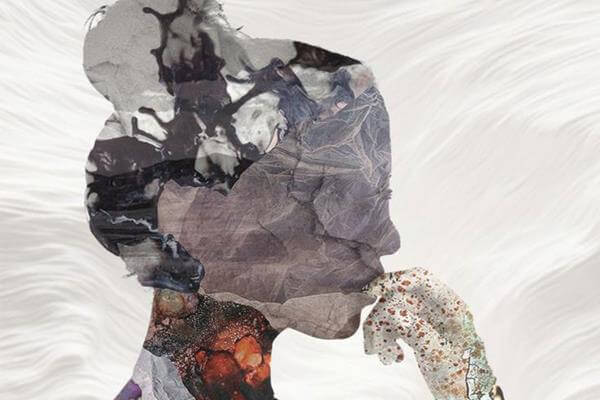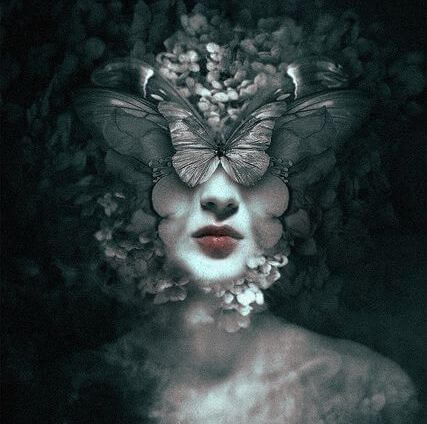This Video of Krishnamurti Will Make You Reflect Upon Yourself

Krishnamurti shined for his great wisdom, serving as a spiritual guide to many people all over the world. He invited people to start a psychological revolution which originates from each one of us. Krishnamurti’s reflections help us delve into the very core of who we truly are.
Krishnamurti encouraged us to experience the process of self-knowledge, learning from looking within, and not from everything that comes externally and every theoretical thing we absorb. He invites us to doubt and question and remain skeptical about everything that is presented to us, including our own experiences, thoughts, ideas and conclusions.
Self-discovery is a process that lasts from our birth until the day we die. And in this process we count with the resources to become closer to our own nature, which is constantly changing.
We cause our own suffering, living through attachments and the fear of not being valued by others. We aren’t willing to experience our human nature.
The nature of thought

Our thoughts serve as a great tool to generate energy, to mobilize us to do the things we desire. We have created this society in which we live in based on our thoughts. But, what is thought? Krishnamurti has investigated this topic quite thoroughly: thought is based on our knowledge, its structure is knowledge- memory-thought.
Knowledge comes from what we experience, and this would be the beginning of thought. Due to the fact that experience is limited, knowledge is limited, memory is limited and our thoughts are limited. Thus, everything we create has a limited nature. Our gods, our beliefs, our advances and discoveries. It all has a limited structure, which can always be expanded and refuted.
Thought also creates fear
Fear of ending up alone, fear of abandonment, fear of not fitting in with other people, fear of not getting to where we want to go in life, fear of rejection, of not being accepted, fear of losing your job, fear of what could happen in the future, etc.
All of these fears we create ourselves, thus preventing our own development, limiting our minds to thinking about the things we are scared of. We become people who are fearful towards life, thinking about the future, about the past, and thinking about how to quickly adjust ourselves to this fear. Fear emerges when we want security, at least that’s what Krishnamurti affirms:
“If one seeks security in a relationship, it becomes an investment to acquire comfort, in an illusion. Relationships are very insecure. There lies their greatness, and if we seek security in a relationship, we will prevent its function, which has its own consequences and disgraces.
When insecurity transforms into dependence, which is ultimately unavoidable, we leave that concrete relationship and seek out another which will offer us the hope of finding long-lasting security. But security within a relationship simply doesn’t exist, and dependency only produces fear.
Without understanding this process of security and fear, the relationship turns into a binding obstacle. A road to ignorance, and consequently, your whole existence will be struggle and pain. There is no way out except the clear thinking that comes with self-knowledge.”

Fear destroys love
Krishnamurti transmits the message that it is not possible to love when fear is present. Love cannot coexist next to fear. Likewise, fear cannot coexist next to true love. These energies are truly opposites.
When you understand the origin of fear, you can likewise understand the nature of love. This is something that is shared by all human beings. We are scared of death and loss. However, attachment makes love impossible.
We have created the fear of death through our beliefs about what death is, but we don’t know what it is. We haven’t experienced what it means to die. We are dying while we live, constantly. Krishnamurti emphasizes this fact: to live is to die.
This truly deep message, which we can see in the video, leads us to the absurdities of our own thoughts. And these generate the fears that in turn keep us from living freely.
Can we live abandoning the things we attach to every day? With this question, Krishnamurti indicates the meaning of living, and he invites us to free ourselves of our fears in order to be able to experience love.
“I want to find out for myself what it is to die, what it means to be able to free myself completely of everything man has created, including myself.”-Krishnamurti-
Krishnamurti shined for his great wisdom, serving as a spiritual guide to many people all over the world. He invited people to start a psychological revolution which originates from each one of us. Krishnamurti’s reflections help us delve into the very core of who we truly are.
Krishnamurti encouraged us to experience the process of self-knowledge, learning from looking within, and not from everything that comes externally and every theoretical thing we absorb. He invites us to doubt and question and remain skeptical about everything that is presented to us, including our own experiences, thoughts, ideas and conclusions.
Self-discovery is a process that lasts from our birth until the day we die. And in this process we count with the resources to become closer to our own nature, which is constantly changing.
We cause our own suffering, living through attachments and the fear of not being valued by others. We aren’t willing to experience our human nature.
The nature of thought

Our thoughts serve as a great tool to generate energy, to mobilize us to do the things we desire. We have created this society in which we live in based on our thoughts. But, what is thought? Krishnamurti has investigated this topic quite thoroughly: thought is based on our knowledge, its structure is knowledge- memory-thought.
Knowledge comes from what we experience, and this would be the beginning of thought. Due to the fact that experience is limited, knowledge is limited, memory is limited and our thoughts are limited. Thus, everything we create has a limited nature. Our gods, our beliefs, our advances and discoveries. It all has a limited structure, which can always be expanded and refuted.
Thought also creates fear
Fear of ending up alone, fear of abandonment, fear of not fitting in with other people, fear of not getting to where we want to go in life, fear of rejection, of not being accepted, fear of losing your job, fear of what could happen in the future, etc.
All of these fears we create ourselves, thus preventing our own development, limiting our minds to thinking about the things we are scared of. We become people who are fearful towards life, thinking about the future, about the past, and thinking about how to quickly adjust ourselves to this fear. Fear emerges when we want security, at least that’s what Krishnamurti affirms:
“If one seeks security in a relationship, it becomes an investment to acquire comfort, in an illusion. Relationships are very insecure. There lies their greatness, and if we seek security in a relationship, we will prevent its function, which has its own consequences and disgraces.
When insecurity transforms into dependence, which is ultimately unavoidable, we leave that concrete relationship and seek out another which will offer us the hope of finding long-lasting security. But security within a relationship simply doesn’t exist, and dependency only produces fear.
Without understanding this process of security and fear, the relationship turns into a binding obstacle. A road to ignorance, and consequently, your whole existence will be struggle and pain. There is no way out except the clear thinking that comes with self-knowledge.”

Fear destroys love
Krishnamurti transmits the message that it is not possible to love when fear is present. Love cannot coexist next to fear. Likewise, fear cannot coexist next to true love. These energies are truly opposites.
When you understand the origin of fear, you can likewise understand the nature of love. This is something that is shared by all human beings. We are scared of death and loss. However, attachment makes love impossible.
We have created the fear of death through our beliefs about what death is, but we don’t know what it is. We haven’t experienced what it means to die. We are dying while we live, constantly. Krishnamurti emphasizes this fact: to live is to die.
This truly deep message, which we can see in the video, leads us to the absurdities of our own thoughts. And these generate the fears that in turn keep us from living freely.
Can we live abandoning the things we attach to every day? With this question, Krishnamurti indicates the meaning of living, and he invites us to free ourselves of our fears in order to be able to experience love.
“I want to find out for myself what it is to die, what it means to be able to free myself completely of everything man has created, including myself.”-Krishnamurti-
This text is provided for informational purposes only and does not replace consultation with a professional. If in doubt, consult your specialist.







